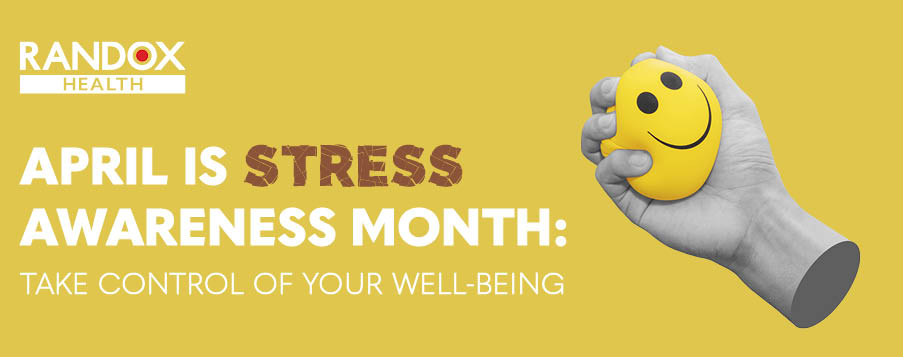01/04/2025
April is Stress Awareness Month, a time to recognise how stress impacts the body and daily life. In today’s fast paced world, stress is everywhere – long work hours, financial pressures, and the endless juggle of responsibilities. But while some stress is normal, too much can take a toll on your physical and mental health.
The Reality of Stress in the UK
- 76% of adults say they have felt overwhelmed by stress in the past year. ¹
- Work-related stress, depression, and anxiety accounted for nearly half of all work-related ill health cases in 2022/23, leading to 17.1 million lost working days. ²
- Job pressure, financial worries, and lack of work-life balance are some of the biggest stress triggers. ³
If stress is part of your daily life, you’re not alone. But small changes can make a big difference.
What Is Cortisol, and Why Does It Matter?
You’ve probably heard of cortisol, often called the “stress hormone”. It’s essential for survival – helping you stay alert, energised, and ready to tackle life’s challenges. But when stress becomes chronic, cortisol levels stay high, which can lead to:
- Fatigue and low energy
- Weight gain
- Trouble sleeping or feeling restless at night
- Weakened immune system
- Higher risk of anxiety or burnout
By understanding how stress affects your body, you can take proactive steps to manage it.
How Stress Impacts Your Body – Key Biomarkers to Watch
Stress doesn’t just affect how you feel – it leaves measurable signs in your body. By looking at certain biomarkers, you can get deeper insights into how stress is affecting your health.
C-Reactive Protein (CRP) – Inflammation Marker
CRP is a protein linked to inflammation in the body. Chronic stress can increase inflammation, which raises your risk of:
• Heart disease and high blood pressure
• Joint pain and muscle fatigue
• Weakened immune system
Blood Sugar & Insulin Levels
Stress can cause spikes in blood sugar, leading to:
• Higher risk of insulin resistance and type 2 diabetes
• Energy crashes and mood swings
Cholesterol & Blood Pressure
Stress hormones can raise bad (LDL) cholesterol and blood pressure, increasing the risk of heart disease.
Tips to Reduce Stress and Regain Balance
- Identify Your Stress Triggers
• Keep a stress journal to recognise patterns in your daily routine.
• Recognise what causes tension- work, finances, lack of downtime – and make small changes. - Set Boundaries at Work
•Avoid checking emails after hours.
• Take regular breaks to prevent burnout.
• Speak up if you’re overwhelmed. - Try Simple Stress-Busting Habits
• Deep breathing: Try the 4-7-8 method.
• Meditation: Helps improve focus and emotional resilience.
• Exercise: Even a short walk can reset your mind and boost mood. - Prioritise Sleep
• Stick to a regular sleep schedule.
• Limit caffeine and screen time before bed.
• Create a relaxing bedtime routine (dim lights, read, stretch). - Get a Health Check
• Chronic stress affects more than just mood – it can impact heart health, digestion and immune function.
• A cortisol test can reveal if stress is putting extra strain on your body.
Take Control of Stress with Randox Health
At Randox Health, we provide comprehensive health checks designed to assess key biomarkers linked to stress, including:
✅ Cortisol levels – Measure levels of the “stress hormone”
✅ Inflammation markers – Detect hidden health risks
✅ Blood sugar & cholesterol levels – Assess metabolic health effects
By understanding how stress affects your body, you can make informed choices to protect your health.
Book your health check today!



